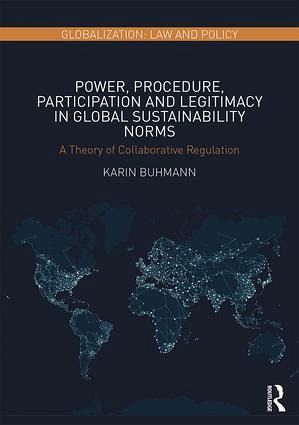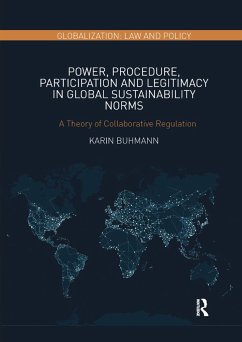
Power, Procedure, Participation and Legitimacy in Global Sustainability Norms
A Theory of Collaborative Regulation
Versandkostenfrei!
Versandfertig in 1-2 Wochen
167,99 €
inkl. MwSt.
Weitere Ausgaben:

PAYBACK Punkte
84 °P sammeln!
This book combines empirical experience on public-private regulation of global sustainability concerns and theoretical perspectives on transnational regulation in a post-national legal order. It sets out new procedural suggestions for legitimate collaborative regulation of global sustainability issues in a global legal and political order.














